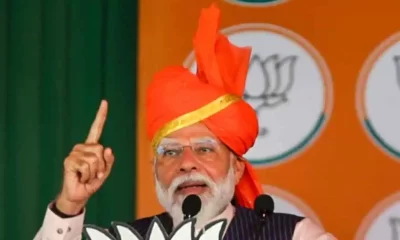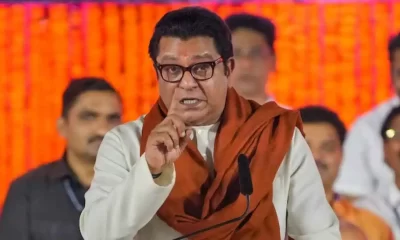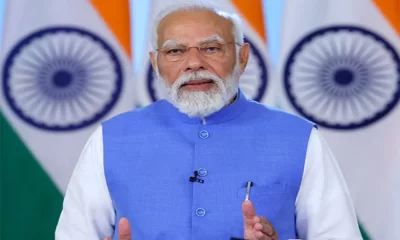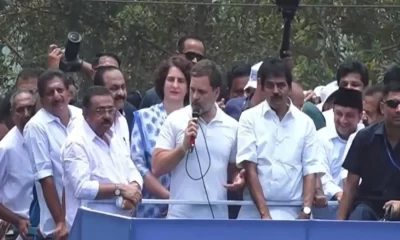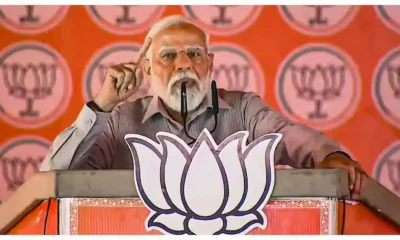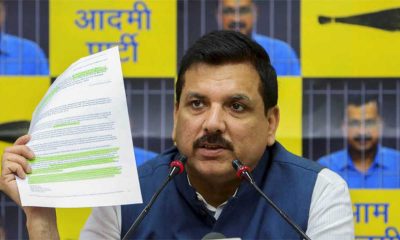India News
Rafale deal controversy: French government’s statement, what is says, what it doesn’t
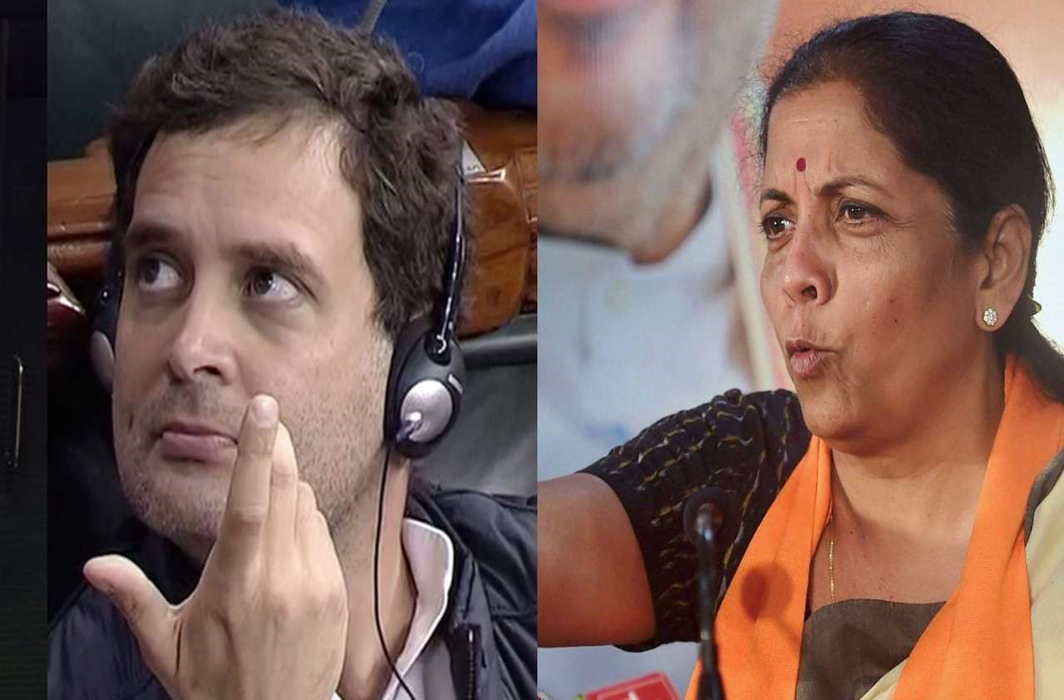
[vc_row][vc_column][vc_column_text]Congress president Rahul Gandhi’s statement in Lok Sabha, during the debate on no-confidence motion against Narendra Modi government, that there was no secrecy pact between India and France over deal for purchase of Rafale aircraft, was countered by French government within hours.
The statement issued by the French government affirmed that a secrecy pact exists between the two countries. The statement, however, only said the agreement “legally binds the two states to protect the classified information provided by the partner, that could impact security and operational capabilities of the defence equipment”.
However, Defence Minister Nirmala Sitharaman stretched the meaning of “classified information… that could impact security and operational capabilities of the defence equipment” to include the aircraft price.
Also lost in the noise was the aspect of shunting out public sector’s Hindustan Aeronautcis Limited, which has been making fighter aircraft for decades, and giving the contract to a private player with no background or experience in the field.
In its statement issued from Paris, the French foreign ministry said: “We have noted the statement of Mr Rahul Gandhi before the Indian Parliament. France and India concluded in 2008 a security agreement, which legally binds the two states to protect the classified information provided by the partner, that could impact security and operational capabilities of the defence equipment of India or France. These provisions naturally apply to the IGA concluded on 23 September 2016, on the acquisition of 36 Rafale aircraft and their weapons. As the President of the French Republic indicated publicly in an interview to India Today on March 9, 2018, ‘In India and in France, when a deal is very sensitive, we can’t reveal all details’.”
Defence Minister Nirmala Sitharaman also contradicted Rahul and cited Article 10 of the Inter-Governmental Agreement (IGA) between the two countries on the purchase of Rafale aircraft, which calls for the protection of classified information and materials exchanged under the pact.
She said this agreement was signed in 2008 by UPA government’s defence minister AK Anthony – which wasn’t quite accurate. That deal was junked and replaced by another in 2016, as mentioned in French government’s statement.
Read More: No confidence motion: After a scathing attack, Rahul Gandhi hugs PM Modi
As in the French government’s statement yesterday – Friday, July 20 – even in the interview that French president Macron gave to India Today, he did not say Indian government could not disclose the aircraft cost. He said, “…they will have to consider which details they would want to be revealed to the opposition and Parliament.”[/vc_column_text][vc_column_text css=”.vc_custom_1532169050900{padding-top: 10px !important;padding-right: 10px !important;padding-bottom: 10px !important;padding-left: 10px !important;background-color: #a2b1bf !important;border-radius: 10px !important;}”]Here is the relevant portion of the interview:
Raj Chengappa: Why can’t the details of the deal be revealed and the air cleared up rather than have accusations flying around?
President Macron: First of all, you have these commercial agreements, and obviously you have competitors and we can’t let them know details of the deal. In India and in France, when the deal is very sensitive, we can’t reveal details because of business reasons. Part of the absence of answers to some technical issues is these commercial agreements and the interests of different companies. Secondly, there are some discussions to be organised by the Indian government, and they will have to consider which details they would want to be revealed to the opposition and Parliament. I am not the one to interfere in such a discussion, and you too must realise that we have to consider commercial sensitivities.[/vc_column_text][vc_column_text]When Macron visited India in March this year, the two sides signed a new confidentiality agreement, replacing the 2008 pact, that shields the government from sharing classified information on defence deals, including the Rafale fighter aircraft deal, said a report in The Indian Express (IE). The pact, signed by NSA Ajit Doval and the French President’s diplomatic advisor Philippe Etienne, relates to the exchange and reciprocal protection of classified or protected information.[/vc_column_text][vc_column_text css=”.vc_custom_1532169104071{padding-top: 10px !important;padding-right: 10px !important;padding-bottom: 10px !important;padding-left: 10px !important;background-color: #a2b1bf !important;border-radius: 10px !important;}”]Who said what in Parliament
Congress president Rahul Gandhi, while speaking in the Lok Sabha, said: “The defence minister is sitting here. She had initially said she will disclose to the nation the price of the aircraft. Later, the defence minister clearly said she cannot divulge the details because there is a secrecy pact with France. I met the French President. I asked him is there any such pact between India and France. And the French President told me that there is no such pact between the Indian government and French government. That is the truth… Nirmala Sitharaman has spoken untruth, under pressure from Narendra Modi… Nirmala Sitharaman and the Prime Minister must inform the country.”
Defence Minister Nirmala Sitharaman, who was allowed to speak after Rahul’s hour-long speech, said: “On the secrecy clause, I would like to show it before you, and I have submitted it for your consideration. It is an agreement which was signed during the previous government on January 25, 2008. The agreement of secrecy is an umbrella agreement, which was signed by then defence minister, A K Antony.”
Waving the agreement, she said, “This agreement clearly mentions… (that) ‘as per Article 10 of the Inter-Governmental Agreement between Government of India and Government of France on the purchase of Rafale aircraft, the protection of the classified information and materials exchanged under the IGA shall be governed by the provisions of the security agreement signed on 25 January 2008’.”
Prime Minister Narendra Modi also referred to the issue in his speech. “Just because of one careless allegation in the House on Rafale, both the nations had to release statements. One should not indulge in such childish behaviour,” he said.
Rahul, however, said he stood by his statement in Parliament. “Let them deny if they want. He (Macron) said that before me. I was there, Anand Sharma and former prime minister Manmohan Singh were also there,” he said.[/vc_column_text][vc_column_text]The controversy first broke out on February 5 this year, when Sitharaman told Rajya Sabha that the cost of Rafale aircraft could not be shared since it was “classified information” under the security agreement between the two countries. In a statement issued two days later, the defence ministry said that “in not revealing the item-wise details of the contract, the government is merely following in letter and spirit the confidentiality provisions of a bilateral India-France agreement of 2008, signed by the previous government.”
Read More: No confidence vote: Outcome known, BJP & Opposition hope to score propaganda points
Article 18(3) of the “Agreement between The Government of the Republic of India and The Government of the French Republic concerning the Protection of Classified Information and Material in the field of Defence”, signed in New Delhi on January 25, 2008, states that it will “remain in force for a period of 10 years”, and can “be renewed by tacit consent for a new five-year period”.
According to Article 11(3) of the agreement, “For any contract or sub-contracting contract that includes classified information and material, a security annex shall be drawn up. In this annex, the competent security authority from the party forwarding the information or the material, shall specify what has to be protected by the receiving party, as well as the corresponding classification level, applicable to it.”
However, as per law, pointed out the IE report, the government is bound to provide full information to the Public Accounts Committee (PAC), the Parliamentary Standing Committee on Defence, and the Comptroller and Auditor General (CAG).
Also, at a press conference conducted in the defence ministry in 2017, Sitharaman, flanked by the defence secretary and the deputy chief of air staff, had stated that her ministry “had nothing to hide” and would share the full price details of the deal, reported IE.
In November 2016, Dr Subhash Bhamre, MoS (Defence), in a written response to a question in the Lok Sabha, had said that the “cost of each Rafale aircraft is around Rs 670 crore”. After signing the deal with France in September 2016, top defence ministry officials had also given the breakdown of the Euro 7.9 billion deal for 36 Rafale fighters, as reported by The Indian Express. The basic cost of 36 aircraft was Euro 3,402 million (approximately Rs 670 crore per aircraft), the weaponry cost Euro 710 million, spare parts Euro 1,800 million, weather and terrain compatibility fits Euro 1,700 million, and performance-based logistics support Euro 353 million.[/vc_column_text][/vc_column][/vc_row]
India News
Prime Minister Narendra Modi says RJD is responsible for destroying Bihar, slams Lalu’s party over various corruption cases
The prime minister made a scathing attack at the opposition and said Ghamandia Gathbandhan has no vision or trust. He said when INDIA bloc alliance goes out asking for votes, then they do so on the basis of the work done by Bihar Chief Minister Nitish Kumar.
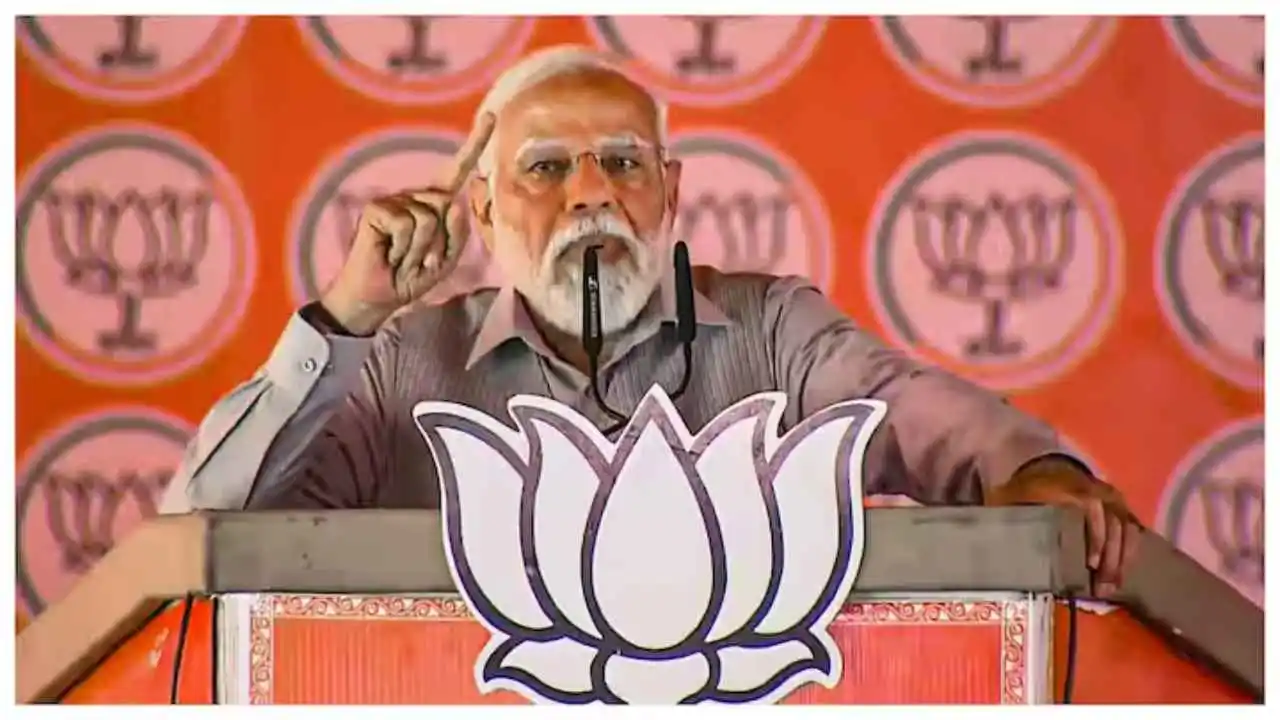
Prime Minister Narendra Modi on Tuesday said that India and Bihar are moving forward to return to their ancient glory and added the upcoming Lok Sabha elections is an election to take a resolve for developed India and developed Bihar. PM Modi was addressing an election rally in Bihar’s Gaya, where he said that the public support that has gathered on the land of Gaya clearly shows enthusiasm of the people once again for the Modi government.
The prime minister spoke on BJP’s manifesto for the upcoming Lok Sabha elections and said that it is for the first time that a Sankalp Patra of any party is being called a guarantee card as in the last 10 years, people have seen Modi’s guarantee for fulfillment of a guarantee.
PM Modi said for the next five years, Modi’s guarantee card has been updated. He promised 3 crore houses will be made for the poor, the poor will get free ration for the next 5 years and those above 70 years of age will receive free treatment upto Rs 5 lakhs He said the PM-Kisan Samman Nidhi yojana will be continued and all of these are Modi’s guarantees.
The prime minister made a scathing attack at the opposition and said Ghamandia Gathbandhan has no vision or trust. He said when INDIA bloc alliance goes out asking for votes, then they do so on the basis of the work done by Bihar Chief Minister Nitish Kumar. PM Modi said the people of Bihar know why they try and take credit for the work done by Nitish and the central government.
The prime minister said RJD is responsible for destroying Bihar and slammed Lalu’s party over various corruption cases including land for jobs scam, fodder scam. Speaking about BJP’s manifesto PM Modi said, there is a roadmap for every section and sector of the society.
India News
My name is Arvind Kejriwal and I am not terrorist: Sanjay Singh reads Delhi CM’s message from Tihar Jail
AAP MP Sanjay Singh read out a message from jailed Delhi chief minister Arvind Kejriwal.
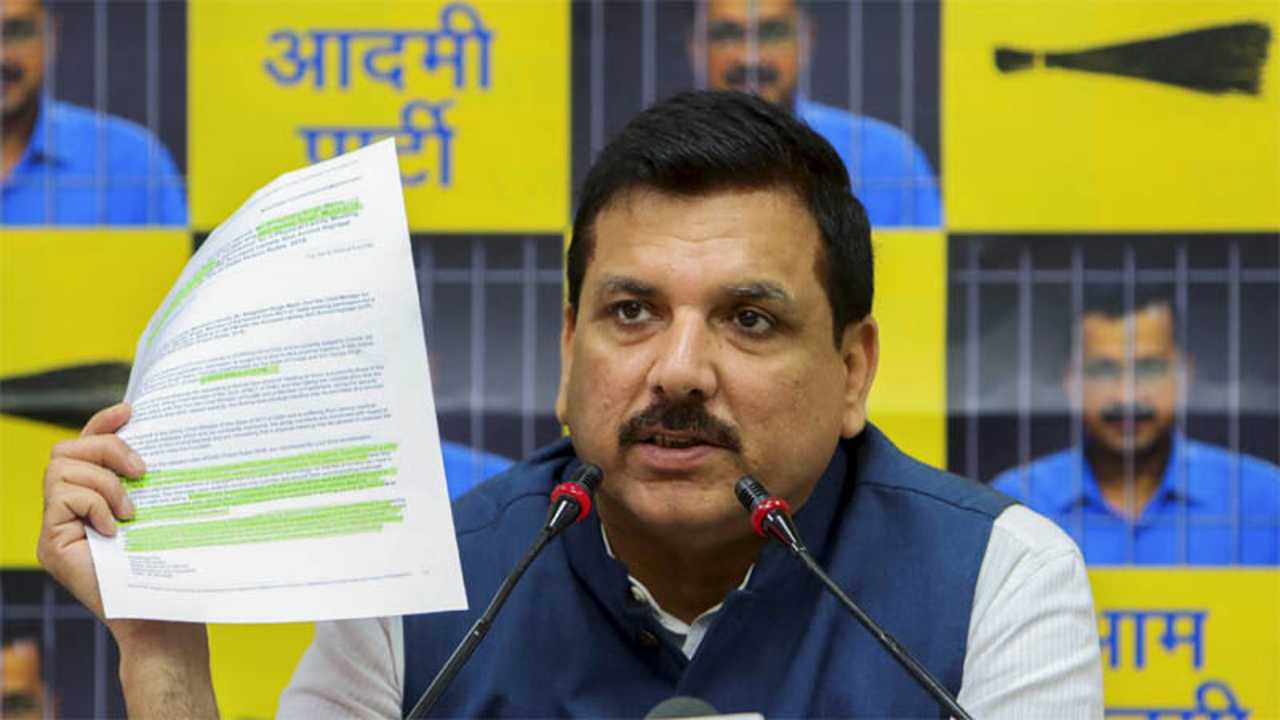
Aam Aadmi Party (AAP) leader Sanjay Singh today read a message of Delhi Chief Minister Arvind Kejriwal during a press confrence. The AAP leader said that Kejriwal has sent a message from Tihar Jail in which he said that he is not a terrorist.
Sanjay Singh said, Tihar jail conveyed a message from Delhi CM Arvind Kejriwal, who served like a son and a brother for the country and the people of Delhi. The Aap MP further read CM’s message, which says, “My name is Arvind Kejriwal and I am not a terrorist.”
Punjab Chief Minister Bhagwant Mann was compelled to meet the three-time elected chief minister of Delhi through a glass. This clearly shows that the prime minister dislikes Arvind Kejriwal,” the AAP MP claimed.
Arvind Kejriwal is among the people arrested by the Enforcement Directorate in connection with the Delhi excise policy-linked money laundering case. Arvind Kejriwal is being held under judicial custody at the Tihar jail at the moment.
A Delhi court extended Arvind Kejriwal’s judicial custody on Monday until April 23. The Delhi High Court’s decision to reject the AAP national convenor’s appeal against his ED arrest and subsequent remand in the excise policy issue was challenged by the convenor in an earlier Supreme Court application.
Sanjay Singh also claimed during the press conference that efforts are made to demoralize every day. He also said, Arvind Kejriwal is this person, he is not formed of the same clay. The more you attempt to break him, the more resilient he will become. CM Bhagwant Mann broke down in tears yesterday at the meeting. They are all affected by this, but the BJP and PM Modi should be ashamed of themselves, the AAP MP claimed.
Bhagwant Mann met Arvind Kejriwal in Tihar jail on Monday, where he claimed he was being treated like a terrorist. Meanwhile, the AAP announced that its Delhi government would begin operating from jail in a proper format, with the chief minister scheduled to meet with two ministers starting next week.
India News
2 shooters arrested from Gujarat for firing outside Salman Khan’s house
The Mumbai Crime Branch has arrested two accused for their alleged involvement in the firing incident outside Salman Khan’s house.
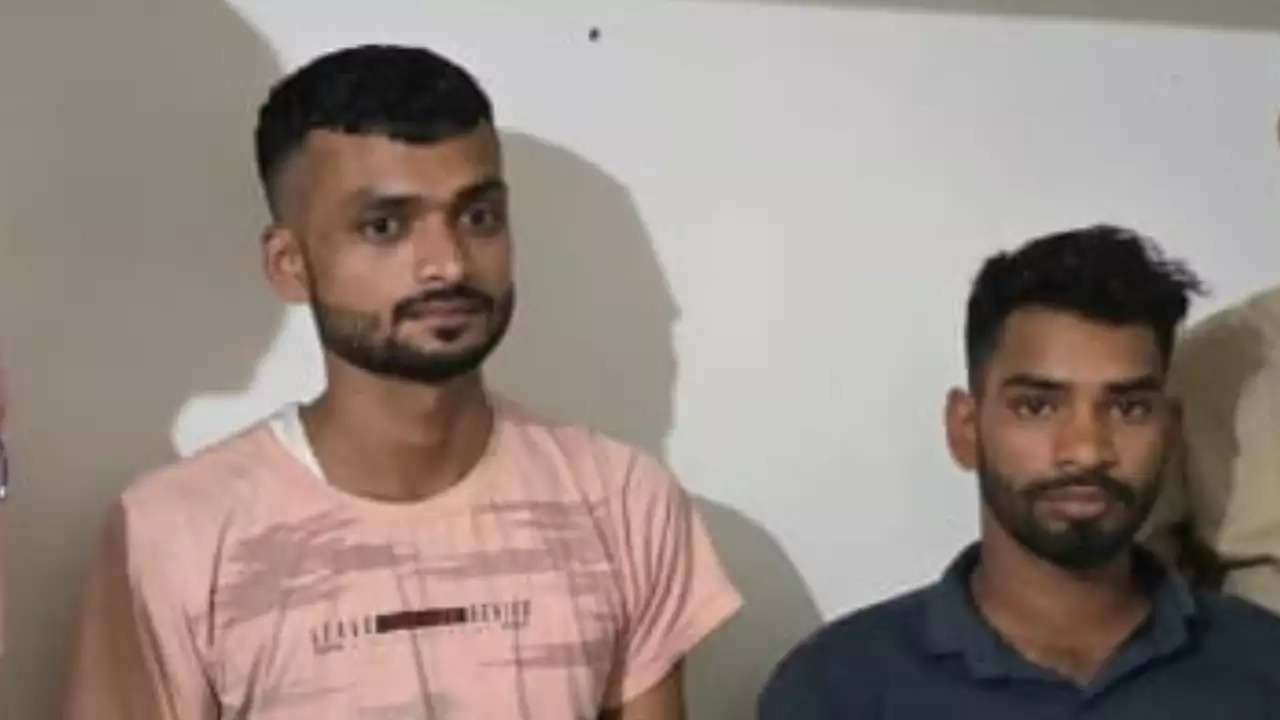
Two accused have been arrested by the Mumbai Crime Branch on suspicion of firing on April 14 outside Bollywood actor Salman Khan’s Galaxy Apartment in Mumbai’s Bandra. According to Mumbai Police, the two shooters were arrested late on Monday night in Bhuj, Gujarat.
The suspects were identified as Sagar Shrijogendra Pal, 21, and Vicky Sahab Gupta, 24, both of Masihi, in the West Champaran district of Bihar. The suspects will be brought to Mumbai on Tuesday morning.
The Bollywood actor’s farmhouse is located in the Panvel, Navi Mumbai, and the two shooters, who are suspected of opening fire outside his home had apparently rented a house there for a month. Around 5 in the morning on Sunday, two unidentified men shot four rounds outside the actor’s Bandra Galaxy Apartments before leaving the scene.
Salman Khan was reportedly present at his home when the gunshots happened, according to the police. However, no one was injured or died in the incident.
After firing, the suspects left their bike outside a church, walked a little distance, and took an autorickshaw to the Bandra railway station, according to officials. After that, they took a train to the Santacruz station and, in order to continue, hailed another autorickshaw.
Salman Khan, meanwhile, was seen leaving Galaxy Apartments for the first time since the shooting incident on Monday afternoon. Numerous police vans surrounded Salman’s white Nissan Patrol Bulletproof SUV.
In response to the firing, Arbaaz said that the family was taken aback by the unexpected event. The recent incident of firing by two unidentified person on a motorcycle at Galaxy apartment the residence of the Salim Khan family is very disturbing and unnerving, Arbaaz wrote in a long statement shared on his official Instagram feed. This horrific event that occurred has shocked our entire family.
Meanwhile, in a social media post, Anmol Bishnoi, Lawrence Bishnoi’s brother, took responsibility for the the incident.
Gangsters Lawrence Bishnoi, who is in jail, and Goldie Brar, who is wanted, have both made repeated threats to assassinate Salman Khan. Sources claim that Bishnoi and Brar sent their assassins to Mumbai in order to murder the actor.
-
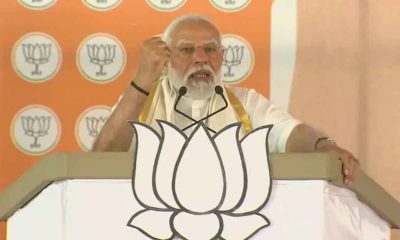
 India News20 hours ago
India News20 hours agoPrime Minister Narendra Modi says Kerala’s LDF and Congress-led UDF are deteriorating condition of the state
-

 Entertainment21 hours ago
Entertainment21 hours agoJanhvi Kapoor shares Radhika Merchant’s bridal shower images, pictures go viral
-

 Cricket news24 hours ago
Cricket news24 hours agoIPL 2024: Shah Rukh Khan wins hearts as he cleans up the sitting area at Eden Gardens, video goes viral
-
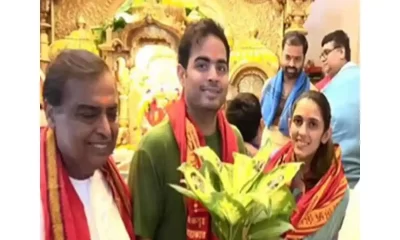
 India News23 hours ago
India News23 hours agoMukesh Ambani, son Akash Ambani and wife Shloka Mehta offer prayers at Siddhivinayak Temple in Mumbai
-
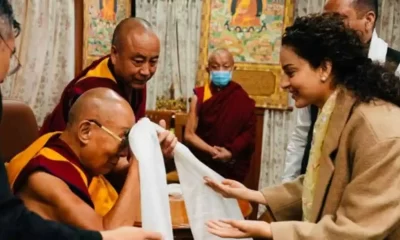
 India News19 hours ago
India News19 hours agoKangana Ranaut meets Dalai Lama in Dharamshala shares pictures on social media ahead of Lok Sabha elections, post goes viral
-

 Entertainment18 hours ago
Entertainment18 hours agoPulkit Samrat, Kriti Kharbanda shed happy tears at their wedding, couple shares video on completing one month
-
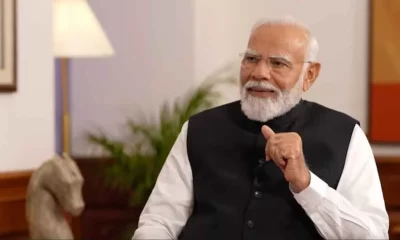
 India News17 hours ago
India News17 hours agoPrime Minister Narendra Modi reveals plan for ambitious 2047 Viksit Bharat project, says work for the project has been ongoing for last 2 years
-
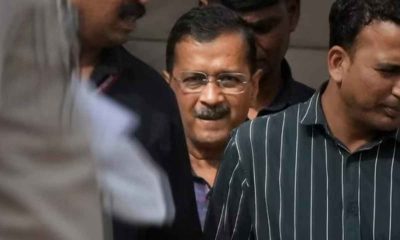
 India News21 hours ago
India News21 hours agoLiquor Policy Case: Supreme Court issues notice on plea by Delhi CM Arvind Kejriwal challenging arrest and remand by Enforcement Directorate


